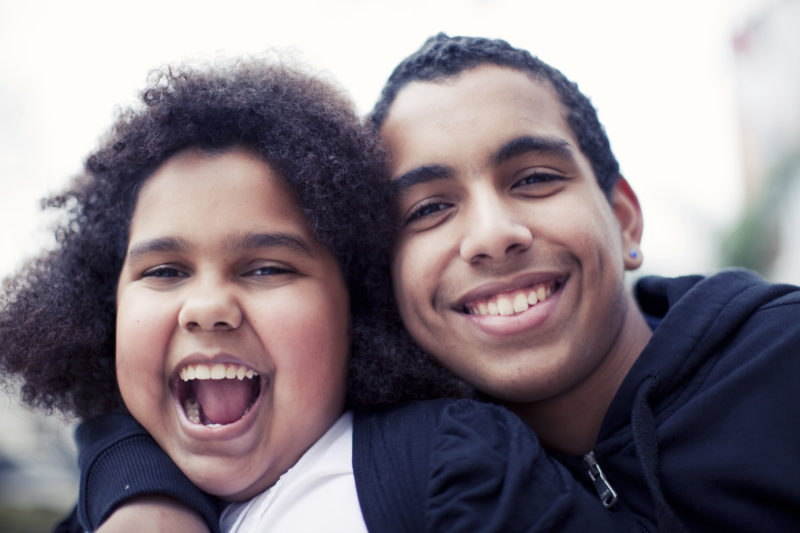Being the sibling of a child with autism spectrum disorder (ASD) and other medical or developmental diagnoses can have its challenges, but it can also provide opportunities in building resiliency and compassion towards family members and others.
The Center for Autism & Neurodevelopmental Disorders had the unique opportunity to facilitate a 6-week sibling support series and have found both positive and negative impacts are shared among the siblings of children diagnosed with ASD. On the positive side, when siblings have the opportunity to form stronger connections and improve relationships with their parents or caregivers, they demonstrate increased empathy, an awareness of differences and resiliency. Alternately, some of the obstacles siblings shared were frustration, embarrassment, isolation, and lack of attention from parents to the siblings’ needs. Here are five tips for parents on some approaches that can support a sibling of a child with ASD:

- Connect in Shared Language: We encourage parents to make time with their children to talk about their concerns, validate their emotions and find healthy ways to express them, like connecting with others who share in similar experiences. It is important to remind children that they are not alone and that every family is confronted with life’s challenges.
- Explain the Diagnosis: As parents, it is important to assess what your child understands about his or her sibling’s diagnosis. Clarify misconceptions and explain what ASD is, the impacts ASD can have on behaviors for the child with the diagnosis, as well as the impact the sibling may experience.
- Understand that Different Age Groups Have Different Needs: As children develop, their understanding and needs will change. For example, preschoolers are going to be more observant of how the diagnosis will immediately affect them. Since some children can feel levels of guilt thinking they caused the sibling’s autism, it is beneficial to acknowledge their fears and explain they are not responsible for the disorder.
- Create Open Communication: Information is the key component in supporting siblings and helping them cope with having a brother or sister with an ASD diagnosis. Incomplete information may create fantasies that are often worse than the real situation. As parents are coping, siblings are too. Parents and other caregivers should acknowledge that siblings could have the same concerns and worries as them. Limiting the amount of information provided will only lead to more misconceptions. Communicate information about the diagnosis as much as possible.
- Provide Emotional Support and Coping Techniques: Siblings may experience an array of emotions. Caregivers and parents should focus on helping siblings express these emotions in a healthy manner. For example, stress balls, yoga, talk therapy, support groups and approaches that support each sibling’s unique perspectives, experiences and needs.
Parents who had their children participate in The Center’s 6-week sibling support series felt it was an overall positive experience for both the caregivers and siblings. Siblings shared that the support group helped them feel connected with others who had similar feelings and frustrations, and that it helped them understand ASD and how the diagnosis impacts their brother or sister. Additionally, siblings said the series helped them develop more compassion towards their siblings with an ASD diagnosis.
The Center is grateful for the siblings who participated in this series and is looking forward to providing more opportunities like this to continue making a positive impact in the life’s of those who have a loved one with ASD.
The UCI School of Medicine Center for Autism & Neurodevelopmental Disorders is a non-profit entity within UCI Health. For more information, please visit www.thecenter4autism.org/.



